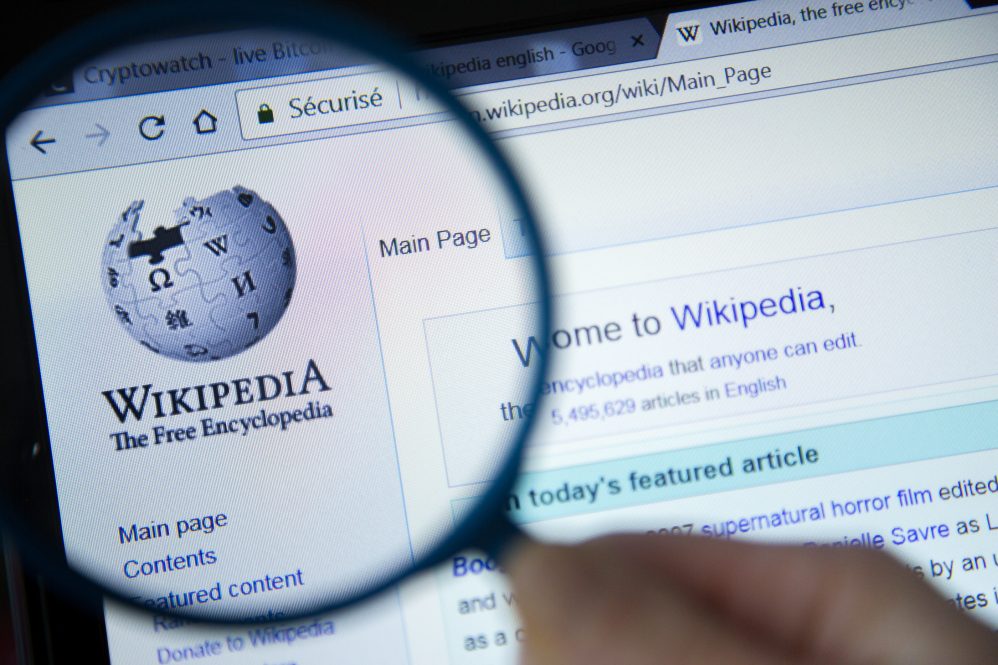Wikipedia has not traditionally been celebrated in the university classroom, but some professors are working to change that. Assistant professor of natural resources and the environment, Jess Brandt, teaches a course in the College of Agriculture, Health and Natural Resources where students bring their new knowledge to the world’s largest open-access project.
“We don’t want Wikipedia to be the only source that people use for scientific information, but it can be a robust source of first information on many topics,” says Brandt, who is in CAHNR’s Department of Natural Resources and the Environment and Center for Environmental Sciences and Engineering.
Brandt is part of WikiProject Limnology & Oceanography, a group of early career scientists dedicated to increasing the amount and quality of information on Wikipedia related to water science. Having contributed to the site herself, she thought it could serve as an engaging educational tool. Last year, the team published a paper on using Wikipedia as a tool for resolving information inequality. They identified as classroom Wikipedia projects as one way for people to contribute to this broader goal.
Brandt tasked students in her ecotoxicology course to add to the crowdsourced encyclopedia. As a course project, students created new or edited existing Wikipedia pages on relevant ecotoxicology topics that highlight the connection between environmental contaminants, exposure, and adverse effects to humans and wildlife. During this process, students researched current topics in ecotoxicology, core concepts and subdisciplines, major environmental contamination case studies, and influential scientists.
“Wikipedia suffers much more from incomplete information than from inaccurate information,” Brandt explains. “That is part of the motivation for bringing Wikipedia editing into the classroom, as it increases the breadth and reliability of information on the site. One of the things we emphasize in class is how important it is to make sure the content is supported by references to the scientific literature.”
This effort is supported by Wiki Education, a nonprofit organization that links Wikipedia with academic institutions. Wiki Education’s goal is to increase the scientific content on the site by working with instructors as part of their course curriculum. Once an application is accepted, the course instructor is assigned two Wikipedia staff members to help facilitate the process of editing and page creation.
“The project was challenging for all of us but even more rewarding,” Brandt says. “Initially, students were intimidated by the assignment but as they became familiar with the multiple-step process, this gave way to a sense of ownership over their articles. Many students worked beyond the semester to finalize their content before transferring it to the live pages.”
At the end of the semester, students completed a brief presentation reflecting on their experience. They largely agreed that it was rewarding to translate scientific information for a general audience and by doing so, felt they honed their science communication skills. Students also preferred this project to writing a standard term paper.
“The students showed great commitment. Together, they added over 35,000 words and 413 references to Wikipedia where the information is available to a broad audience. They made a tangible contribution at the same time that they were expanding their personal knowledge, which is such a critical part of our mission at UConn.”



